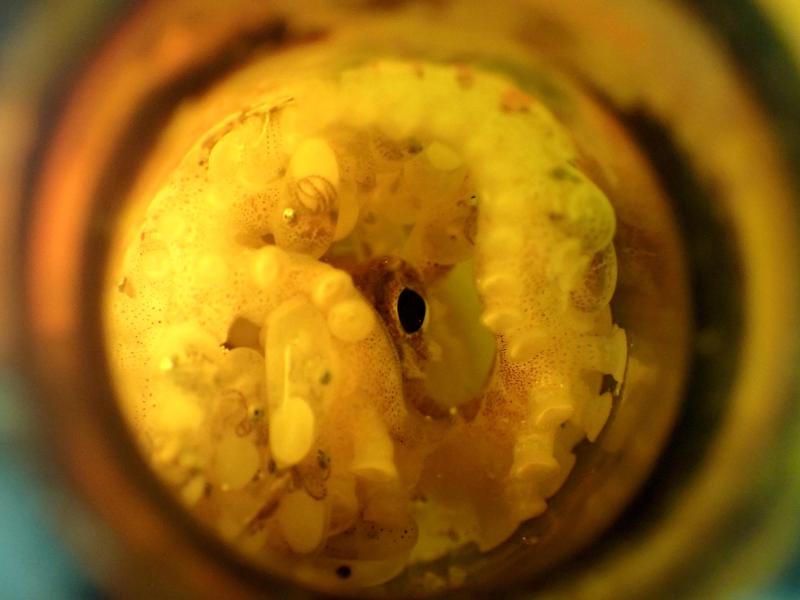While snorkeling in the Florida Keys, a marine biologist found an octopus in a discarded beer bottle
Category: Health, Science & Technology
Via: bob-nelson • one month ago • 4 commentsBy: Benji Jones (Vox)


Florida's beaches and ocean have been harmed by fishing, pollution, and climate change.
But even among the litter animals find a way to survive.

Is this "news"? Is it something that merits an article in a national media outlet?
YES!!!
There are links in the seed.

Sometimes nature thrives in the most unlikely places.
One morning this week, Hanna Koch was snorkeling in the Florida Keys when she came across a brown beer bottle on the sea floor. Koch, a marine biologist for Florida's Monroe County, picked up the bottle, planning to carry it with her and later toss it out.
Through her dive mask, Koch peered inside to make sure it was empty.
That's when she saw an eyeball.
"There was something staring back at me," Koch told me.
It wasn't just one eyeball, actually — but dozens. Inside the bottle was an octopus mom with a brood of babies.
"You could see their eyes, you could see their tentacles," Koch said in a recent interview with Vox and The Dodo. "They were fully formed." (Octopuses technically have arms, not tentacles.)
Instead of taking the bottle with her and throwing it away like she initially intended, Koch handed it to her colleague, another marine biologist, who carefully placed it back on the sandy sea floor. Based on the images and video, Chelsea Bennice, a marine biologist at Florida Atlantic University, said the animal was likely a species of pygmy octopus — making this whole encounter even cuter.
Courtesy of Hanna Koch
On one hand, it's hopeful to find life — an octopus family! — living in rubbish. "One man's trash is another octopuse's nursery," as University of Miami environmental scientist Jennifer Jacquet told me when I showed her the photos. Her graduate student, Janelle Kaz, said it's actually not uncommon for octopuses to take up residence in beer bottles. "They are highly curious and opportunistic," Jacquet said.
But it's also a reminder that, as Florida ecosystems decline, there are fewer and fewer places for wildlife to live. Overfishing, pollution, and climate change have devastated near-shore habitats in the Keys — and especially coral reefs — in the last few decades.
Hanna Koch
The irony, Koch told me, is that she runs a state-funded project in Monroe County to create "artificial reefs:" structures, often made of concrete, to enhance the habitat for fish, lobsters, and other sea creatures. And she was actually snorkeling that morning to figure out where to put some of the structures.
"This octopus found artificial habitat to make its home," Koch said. "I was just like, 'Wait momma, because I'm going to put out some better habitat for you — something that someone can't pick up and throw away.'"
Whatever

Tags
Who is online
48 visitors



Octopuses are s-o-o-o cool!
They are. We don't deserve them
As we used to say in the navy "Any port in a storm"
What is it about this article that made me think about this?
Hopefully the sealife can coexist with the plastic pollution. Maybe there are species that can live in plastic straws since there are going to be a lot of them.